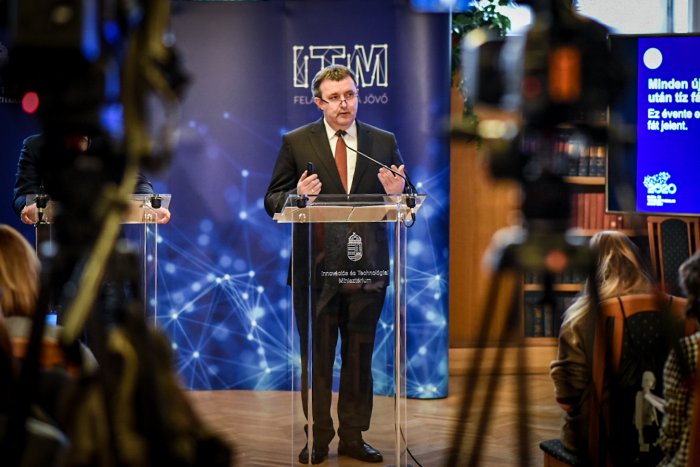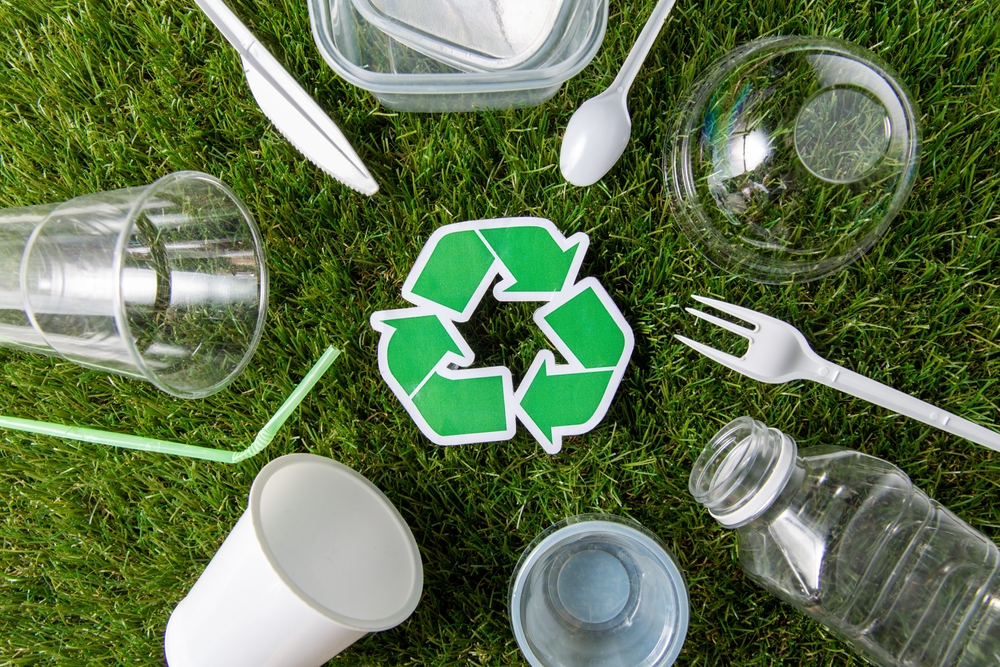Climate protection plan details unveiled

Endre Véssey
Minister for Innovation and Technology László Palkovics unveiled the eight points of the new Climate and Nature Protection Action Plan, with measures corresponding to the three principal expectations of climate policy, according to government website kormany.hu.
László Palkovics (Image: Endre Véssey)
The plan will strive to reduce harmful substance emissions, serve the adaptation to climate change, and play a part in shaping mentality.
The Minister highlighted that, according to the action plan, Hungary will start the elimination of illegal waste disposal sites on July 1, and effective as of the same date they will set up a waste management authority. Duties of the new authority will include monitoring the waste management sector, finding illegal waste disposal sites, imposing penalties, and obliging property owners to remove waste in cooperation with the local governments concerned.
The government will also ban the continued distribution of single-use plastics, and protect Hungary’s rivers from waste arriving in the country from abroad. They will also expect multinational companies to use environmentally friendly technologies. According to the plan, Hungary will increase the capacity of solar power plants six-fold in the next 10 years, and will also support the wider appearance and use of cheap electric cars. They will introduce Green Government Bonds, and will plant 10 trees for every new-born baby, the Minister listed.
Single-use plastics to be banned next year
Palkovics highlighted that the single-use plastic ban will come into effect as soon as next year. He added that the government will take all necessary measures to ensure the replacement of mass single-use, disposable products with other easily reusable and recyclable products. They will support businesses in the development and manufacture of such products.
The minister said that Hungary will create deposit return schemes in the case of bottles, plastic bottles, and metal cans, and will convert any waste that cannot be recycled into energy to be used by Hungarian families and Hungarian businesses.
As part of adaptation to climate change, special attention will be paid to protecting Hungary’s natural waters, the Minister said, taking the view that one cannot allow waste coming to Hungary via rivers from abroad in consequence of irresponsible environmental behavior to pollute natural and national values, rivers, waters and their flora and fauna.
Until 2021, the state will provide for restoring natural habitats in 150,000 hectares of protected natural areas as well as for creating the conditions for their continued preservation. By 2030 forest areas will increase to 27% of the country’s territory, he added.
Palkovics said the government will take stringent measures against multinational companies to ensure that they use environmentally friendly technologies. The government plans to support the renewable energy production of Hungarian SMEs with HUF 32 billion.
Plans also include converting the Mátra Power Plant into an environmentally friendly facility, will gradually phase out its lignite units, and coal firing will stop after 2025. Parallel with the gradual elimination of lignite firing, they will develop natural gas-based and other modern technologies such as solar power production, electricity storage and increasing the waste-to-energy capacity of the power plant.
According to the action plan, in 10 years they Hungary’s solar power production capacity will increase six-fold. The government will support the solar power production of households with preferential loans and a system of net metering.
By 2022 they will incentivize the commissioning of 3,000, while by 2030 minimum 6,000 megawatts of solar power generating capacity, in particular, in the case of individual consumers and in the area of large-scale, power plant energy production.
90% carbon-free by 2030
Palkovics stressed that by 2030, 90% of the energy generated in Hungary will be carbon-free. According to him, the Hungarian energy strategy is based on the concept that primarily nuclear energy and solar energy should account for a considerable percentage of Hungary’s power supply. They will help Hungarian households so that they can decide themselves about the extent and timing of their energy consumption. By 2030 they will support the installation of a minimum of 1 million smart meters.
The action plan also extends to transport, as part of which Hungary will reform the incentivization of electromobility by offering more extensive grants. They will create the opportunity for providing higher grants in the case of small and cheap cars. In the interest of the availability of the necessary services, all newly-built residential and office buildings will have to feature charging stations for electric cars.
The plan also supports the procurement of low- and zero-emission vehicles in public transport. The government will launch a Green Bus program and have already started the preparations for the offering of green bonds seeking to serve climate protection.
Tamás Schanda, Parliamentary State Secretary of the Ministry for Innovation and Technology noted that, in addition to the further reduction of emission levels, other important aspirations include energy security, the coordination of the goals of climate protection and the development of the economy so that they reinforce one another, and the protection of the created environment which will be promoted by specific measures laid down in the action plan.
SUPPORT THE BUDAPEST BUSINESS JOURNAL
Producing journalism that is worthy of the name is a costly business. For 27 years, the publishers, editors and reporters of the Budapest Business Journal have striven to bring you business news that works, information that you can trust, that is factual, accurate and presented without fear or favor.
Newspaper organizations across the globe have struggled to find a business model that allows them to continue to excel, without compromising their ability to perform. Most recently, some have experimented with the idea of involving their most important stakeholders, their readers.
We would like to offer that same opportunity to our readers. We would like to invite you to help us deliver the quality business journalism you require. Hit our Support the BBJ button and you can choose the how much and how often you send us your contributions.









